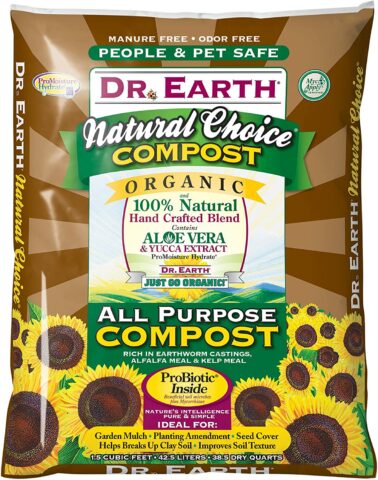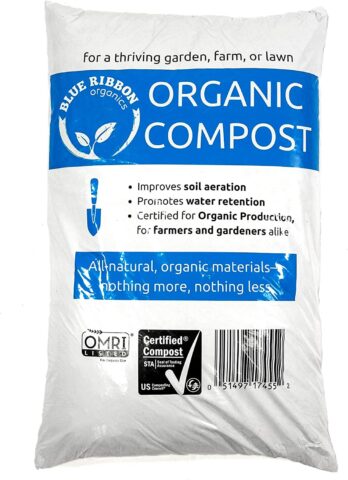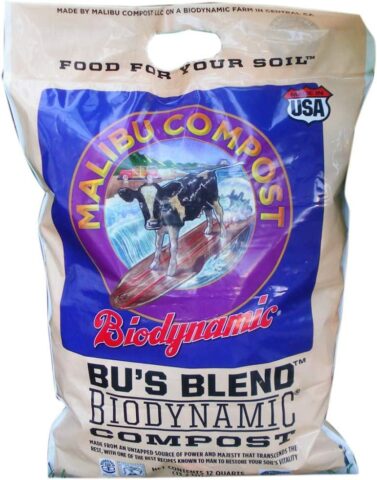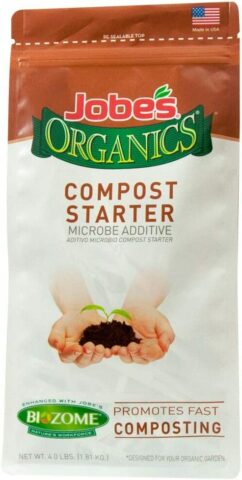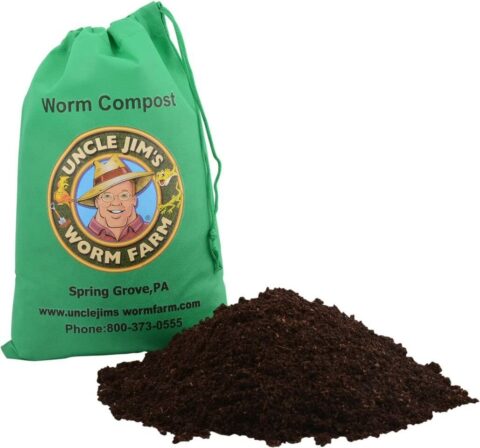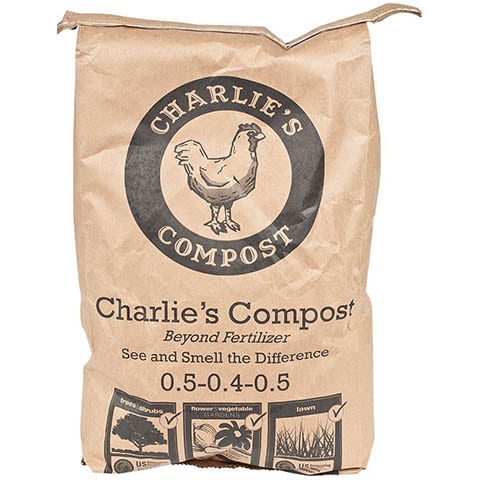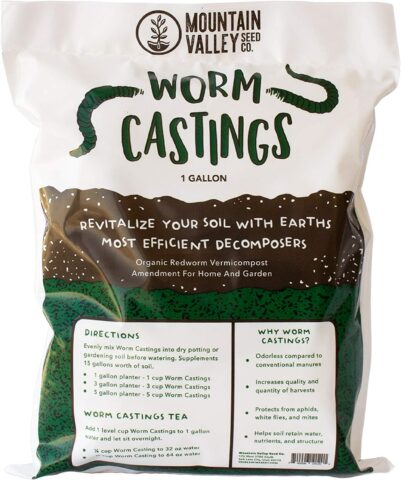9 Best Organic Composts for Vegetable Gardens in 2025: Reviews and Top Picks
-

- Last updated:
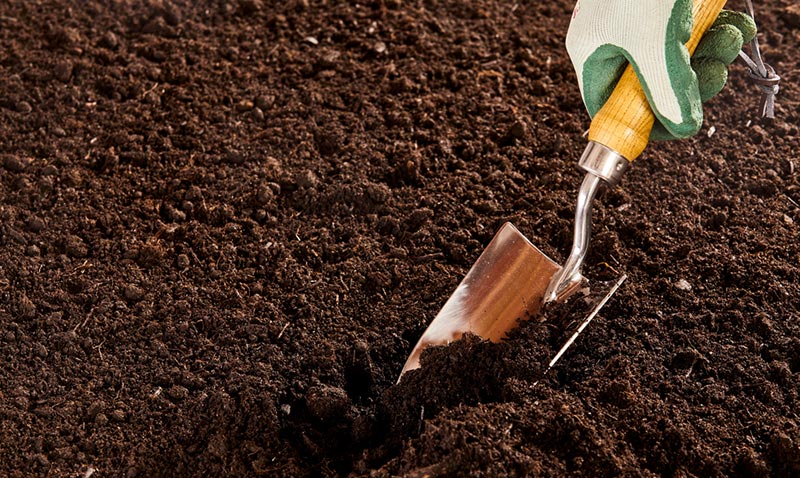

Vegetables require sun, water, and food to grow, and a good quality compost can provide nourishment. When your vegetables are thriving and growing, they are using up all the nutrients from the soil, and so before a new crop is planted, that soil needs to be replenished. That is where compost shines! It will replace the depleted nutrients, retain moisture, and condition the soil to attract beneficial microbes and worms.
While it is preferable to make your own compost, it is only sometimes possible. When you buy organic bagged compost, you can be confident that it contains no toxins or pesticides. In this article, you can look at our reviews to help you find the best organic compost to buy for your vegetable garden.

A Quick Look at Our Favorites in 2025
| Rating | Image | Product | Details | |
|---|---|---|---|---|
Best Overall
 |
 |
Dr. Earth Compost |
|
CHECK PRICE |
Best Value

|
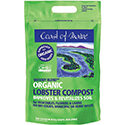
|
Coast of Maine Organic Compost |
|
CHECK PRICE |
Premium Choice

|
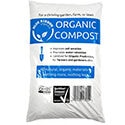
|
Ribbon Organic’s Organic Compost |
|
CHECK PRICE |
|
|
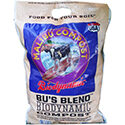
|
Malibu Compost |
|
CHECK PRICE |
|
|
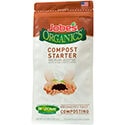
|
Jobes Organic Fast Acting Fertilizer Compost |
|
CHECK PRICE |
The 10 Best Organic Composts for Vegetable Gardens
1. Dr. Earth Organic Compost – Best Overall
| Ingredients: |
Forest humus, fir bark, peat moss, worm castings, alfalfa meal, kelp meal, soybean meal, fish meal, fish bone meal, micro active seaweed extract, aloe vera, yucca extract, and oyster shell & dolomite limes
|
| Ideal for: | Vegetables, trees, shrubs, bare root planting, flowers |
Dr. Earth’s all-purpose compost is our best overall organic compost that will add tons of nutrients to your vegetable garden and help you create the ideal soil conditions for getting a thriving vegetable garden going. Its formula includes nutritious organic materials and is rich in green-fed earthworm castings.
It includes a valley-grown alfalfa meal, which enriches your soil with nitrogen, phosphorus, and potassium and feeds the microorganisms in your soil to promote underground activity. It also contains triacontanol, a natural growth stimulant. It can be used for various uses in the garden, so along with your vegetable garden, you can use this compost to amend the soil for planting trees, shrubs, flowers, and overseeding lawns.
While this compost is excellent and versatile, some users found some small rocks in their bags.
- Contains earthworm castings
- Contains alfalfa grass and triacontanol
- Suitable for many growing conditions, including containers
- May contain small rocks
2. Coast of Maine Organic Lobster Compost– Best Value
| Ingredients: | Lobster shells, compost, and sphagnum peat moss |
| Ideal for: | Vegetables, potting, soil mix |
Coast of Maine organic compost is a lightweight formula that is ideal for organic vegetable gardens. Its nutrient-dense formula of OMRI-listed and preservative-free ingredients will help your garden thrive. It’s made from ground-up lobster and crab shells for a sustainable material rich in phosphorus, calcium, nitrogen, and peat content, ensuring your roots get all the nutrients they require. A balanced density ensures that the soil retains the most water while also draining consistently. Naturally, due to its ingredients, this compost may emit a fishy odor.
- OMRI-listed and preservative-free
- Rich in phosphorus, calcium, and nitrogen
- Retains moisture
- May smell fishy
3. Blue Ribbon Organic’s Organic Compost – Premium Choice
| Ingredients: |
Brush, firewood, garden debris, grass clippings, leaves, sod, vegetable waste, and wood chips
|
| Ideal for: | Vegetables, flowers, grass, raised beds, trees, shrubs, fruit, soil enrichment |
Blue Ribbon organic compost is a premium, nutritious organic compost for your vegetable garden that will help your garden thrive. Not only will it enrich your vegetable crops and add loads of nutrients to your soil, but it will also improve your soil structure and aeration and help retain moisture so your plants can thrive when water is scarce.
It is also entirely safe for use at any concentration, and because of its all-natural formation, it’s suitable for use in gardens with pets and children. This compost is more expensive, which is most likely due to its organic structure and certification.
- Improves soil structure and aeration
- Retains moisture
- Safe for kids and pets
- Costly
4. Malibu Compost
| Ingredients: |
Dairy cow manure, straw, vineyard wood chips, and biodynamic concentrations of yarrow, chamomile, valerian, stinging nettle, dandelion, and oak bark.
|
| Ideal for: | Vegetables, flowers, compost teas |
Malibu organic compost improves your soil’s ecosystem, saves water, and provides humus for planting. Slow-release nutrients help plants grow more robust and more resilient while encouraging beneficial organisms that earthworms love.
This product has no GMOs, pathogens, weed seeds, or growth hormones. The ingredients in this compost include cow manure, but it is sourced from organic dairy cows. If you prefer to use compost without manure, then this one is not for you.
- Provides humus
- Improves ecosystem of soil
- No GMOs, pathogens, or weed seeds.
- Contains cow manure
5. Jobe’s Organic Fast Acting Fertilizer Compost
| Ingredients: | Biozome, bone meal, feather meal, potassium, processed manure |
| Ideal for: | Compost piles |
Jobe’s Organic compost is ideal for your compost pile if you already have one established in your garden. It helps your plants become more disease-resistant, deters insects, improves soil conditions, and resists drought during the growing season. Its formula includes Biozome, an exclusive blend of microorganisms that improves soil and root health.
Jobes is specially formulated to aid in the breakdown of organic matter and the absorption of minerals and nutrients into the soil, which are then fed directly to the plants to ensure healthy growth. This compost is more suited for compost piles but can be mixed up with your soil. If you do this, you need to be careful not to add too much because it could cause the leaves to burn.
- Design to quickly break down organic matter and add nutrients to the soil
- Helps plants become more resistant to disease
- Deters insects
- Ideal for compost piles
6. Uncle Jim’s Worm Farm Compost
| Ingredients: | Red worm castings |
| Ideal for: | Vegetable gardens, lawns, seedlings, houseplants |
Uncle Jim’s worm castings are designed for people who don’t want to deal with the hassle of making their own worm castings but still need the essential nutrients from pure worm castings to improve soil structure. It is a 100% natural and organic fertilizer that is highly nourishing for plant growth and garden soil.
To promote the best soil structure and aeration, mix it into the soil, whether directly on the ground or in potted plants. It contains beneficial microbes that protect plants from disease while promoting nitrogen to help your veggies thrive! The best part about worm castings is that they are entirely natural but have the same benefits as commercial fertilizers. Some users say it is not ideal for indoor growing.
- 100% natural
- Ideal for people not wanting to make their own worm castings
- Promotes soil structure and aeration
- May not be ideal for indoor growing
7. Charlies Compost
| Ingredients: |
Vegetarian & antibiotic-free chicken manure, biochar, organic grasses, and residue from organic crop production.
|
| Ideal for: | Compost piles |
Charlie’s Compost is a concentrated plant fertilizer that will boost your soil’s bioactivity and nutrient content, resulting in colorful and nutritious vegetables. Because the formula is so concentrated, you only need a small amount, even for the most deficient soils.
Many gardeners have used and raved about this compost, and it’s definitely worth a try. You must take caution when adding it to your compost because too much may cause your plants’ foliage to burn.
- Boost soils bioactivity
- Only need a small amount
- Concentrated plant fertilizer
- Too much can burn foliage
8. Espoma Organic Garden Soil for Vegetables & Flowers
| Ingredients: |
Canadian sphagnum peat moss, limestone, earthworm castings, alfalfa meal, kelp meal, feather meal, yucca extract
|
| Ideal for: | In-ground plantings |
Espoma’s all-natural, organic garden soil contains all of the nutrients and minerals your vegetables require to thrive. Its formula contains kelp meal, which is nutritious and a brilliant soil fertilizer that will add nutrients such as potassium, phosphorus, and nitrogen to your soil. This compost has been enhanced with Myco-tone, which is a blend of 11 strains of Mycorrhizae, to promote root growth, increase water uptake, and prevent transplant shock.
To help loosen heavy soil, it contains sphagnum peat moss, peat humus, and earthworm castings. Peat moss can also hold several times its own weight in moisture, making it ideal for incorporating into your soil when water is scarce. This compost is ideal for in-ground plantings but not for container planting.
- Contains Myco-tone
- contains kelp meal
- Retains water for periods of drought
- Not ideal for container planting
9. Mountain Valley Worm Castings Organic Compost
| Ingredients: | Redworm castings |
| Ideal for: | Vegetables, houseplants, compost tea, micro greens, container gardens |
Mountain Valley organic worm castings are a microbial-rich by-product made from the red earthworm and wiggler and are created by certified organic cow manure that has been digested, processed, and blended. After being digested by worms, they are fortified with essential microbes, bacteria, and slow-release NPK and have a naturally neutral pH of 7.0.
Whether caring for large outdoor vegetable beds or small containers on a patio, these worm castings will supply beneficial nutrients, minimize plant disease, and retain moisture. What is great is that this product is so much more convenient than raising your own earthworms. However, some users have found this product a little dry, but that can easily be rectified.
- More convenient than raising your own worms
- Ideal for large gardens or container planting
- Minimizes plant disease, retains moisture
- Product a bit dry

Buyer’s Guide: Choosing the Best Organic Composts for Vegetable Gardens
A good organic compost will help you grow an abundance of your own homegrown vegetables. When looking to buy organic compost to use in your vegetable garden, there are a few things to keep in mind.
Organic
If you have chosen to grow your vegetables organically, this is the first thing you need to look for. Organic compost should be made from organic sources such as organic vegetables, grass cuttings, and organic plant trimmings. No chemicals or pesticides should have been passed down during the composting process into the compost.
Materials
Compost is made by a mixture of processed materials and each brand will use different materials; some are more beneficial than others. A good one to look out for is an alfalfa meal. It contains a high concentration of the three most important soil nutrients, which are nitrogen, phosphorus, and potassium, and it is excellent for improving the texture and quality of your soil.
It also contains triacontanol, which feeds the microorganisms in your soil. A great material used for its water retention properties is sphagnum peat moss. If you live in an area where water may be scarce, this material is essential in your compost.
Kelp meal is a natural fertilizer found in some compost. Because its nutritional properties are similar to blood and bone fertilizers, it is an excellent choice for vegan gardening.
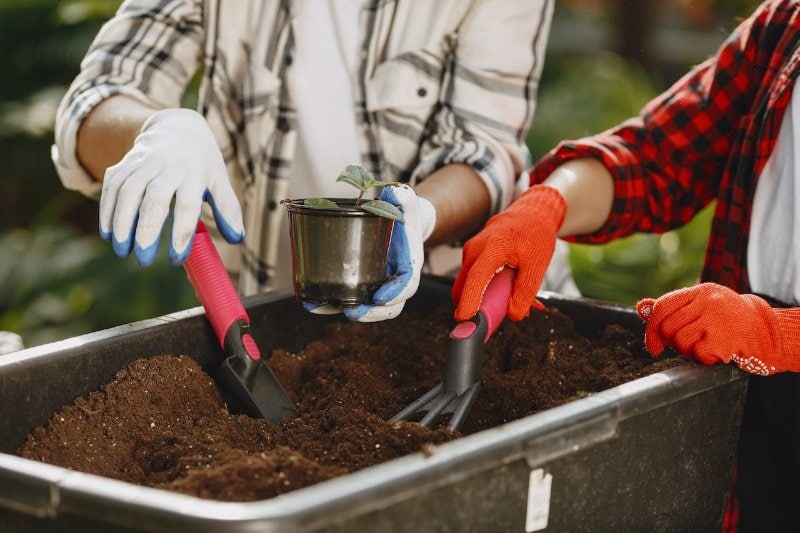
Nutrients
Compost replenishes soil after planting while improving its structure and quality and feeding your growing vegetables. The essential nutrients needed in thriving soil are potassium, phosphorus, and nitrogen, but some compost formulas are fortified with extra nutrients that are patented and are worth looking out for when choosing organic compost. Biozome and Myco-tone are two examples of these nutrients.
Water Retention
When buying compost, consider how well it retains moisture, as it needs to hold onto as much moisture as possible, especially if you live in an area prone to drought.
Container Gardening
If you do not have the space for inground planting and want to grow vegetables in a container, you will need to find a compost suitable for container plants. Some composts are only suitable for compost piles; if they are too concentrated, they could be too powerful for your small container.
Conclusion
Whether you are eager to start a large vegetable crop or want to keep it small and simple in pots, there is a suitable organic compost that can help your vegetables thrive and enrich your soil. Our best overall choice is Dr. Earth’s all-purpose compost since it contains all the best materials and nutrients and is ideal for all types of gardening. Coast of Maine organic compost is our best choice for the money, and Ribbon organic compost is our premium choice. We hope these reviews helped you on your compost search. Happy gardening!
Featured Image Credit: stockcreations, Shutterstock
Contents
